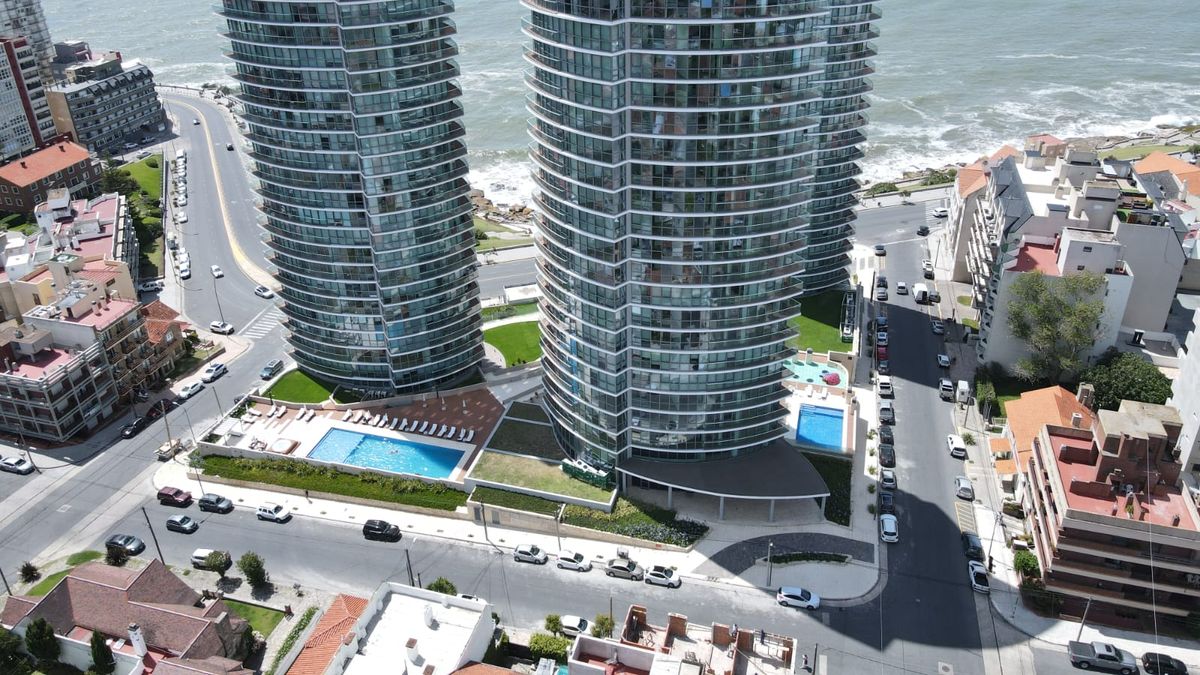During a cadastral inspection operation carried out in the district of General Pueyrredón, the Collection Agency of the province of Buenos Aires (ARBA) detected more than 120 thousand square meters of construction that owners and developers had not declared and, for the most part, paid the real estate tax on the properties as if they were vacant.
Gaspar Spiritoso, deputy director of Territorial Actions and Services at ARBA, explained that “the in-person inspection work, which was carried out in countries and buildings located in select areas of Mar del Plata, allowed us to confirm evasion maneuvers that we had previously detected. , through satellite image controls.”
The 120 thousand square meters that were not registered with the provincial cadastre correspond to 57 high-rise buildings, some with residential apartments, others with offices and garages, and 113 houses – with and without pools – belonging to gated communities, which have exclusive facilities, as an inn, club house and golf course. Homes in these countries have a market value of between US$400,000 and US$800,000.
Among the high-rise buildings, the case of a luxurious 14,000 square meter tower stands out, which was still declared by the development company as vacant. This property is part of an important residential complex located in front of the sea, which has apartments that are sold on the market for over US$335,000.
By incorporating the tower into the cadastre, the value of the real estate item will increase by $182 million, and developers will have to face fines of up to $25 million for not complying with the formal duties that correspond to taxpayers.
countryrie-mar-del-plata.jpg
“This unregistered tower detected by ARBA is the third of that sophisticated complex located in the Playa Chica area. In all cases, the company in charge of the project only declared the construction of the buildings when it was notified by the agency, which clearly shows speculative behavior regarding the tax issue,” Spiritoso stressed.
In fact, the first tower was registered in 2017, after a cadastral control by the Collection Agency. The second was declared in the summer of 2021, after the agency’s notification. That is now repeated with the third building of the complex.
Spiritoso highlighted that “at ARBA we want developers to pay their taxes fairly and equitably, as most taxpayers do. These evasion maneuvers are inadmissible, especially given the magnitude of the projects and the contributory capacity of the companies. For this reason, we are going to apply all the corresponding fines, whether in buildings or countries.”
In relation to inspections, he stated that “although at ARBA we no longer carry out summer operations as we did in other years, we plan to intensify the usual controls that we carry out throughout the Province.”
“We seek to combat tax evasion and recover resources that are essential to sustain the services provided by the Buenos Aires State and finance social policies, especially at this time of difficulties caused by the adjustment of the national government,” said Spiritoso.
In addition to the specific cadastral controls, which are supported by satellite tools and in-person actions, to detect undeclared constructions, ARBA foresees other specific inspections that aim to reduce evasion in sectors with greater taxable capacity.
Among them, with respect to Gross Income, operations will be carried out in restaurants and bars, with signs of alleged evasion, that offer services to the segments with greater economic capacity; and referring to property taxes, unregistered sports boats or whose owners have a high level of debt will be targeted.
Source: Ambito




